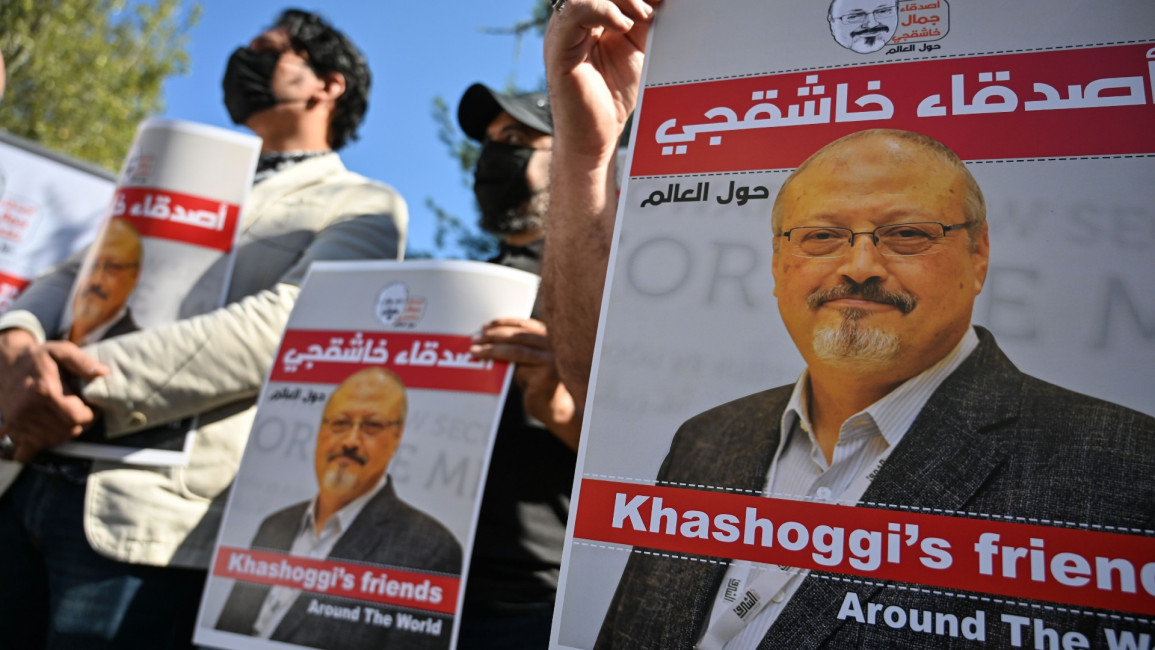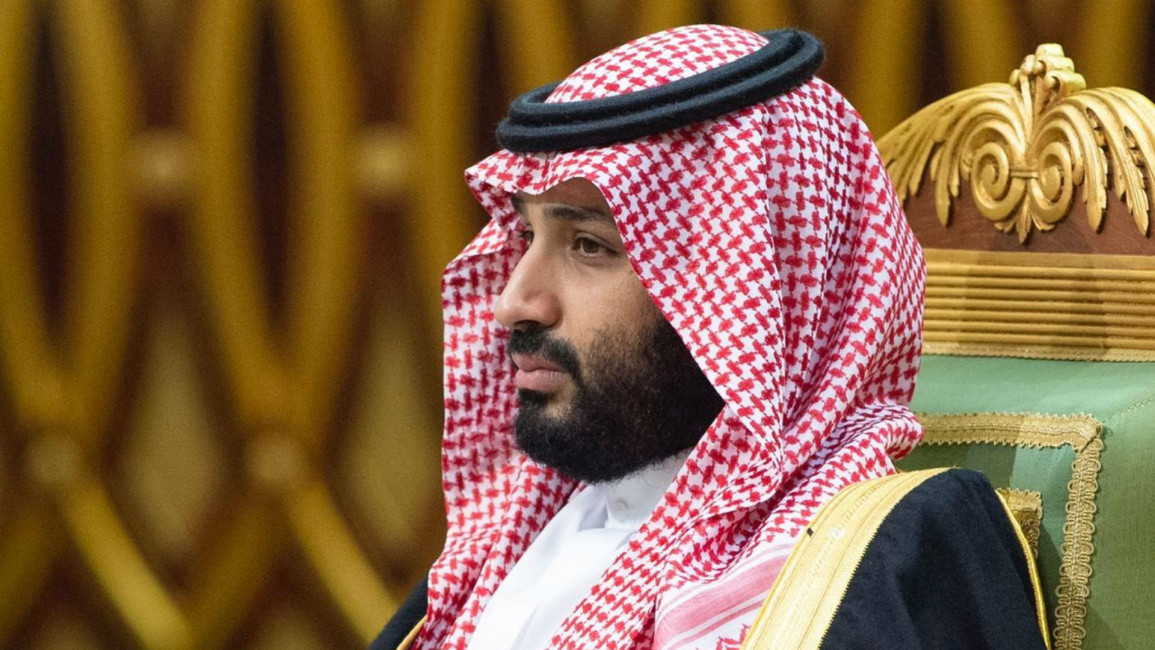
MbS as PM: The implications of Saudi Arabia's reshuffle

Crown Prince Mohammed bin Salman (MbS) was named the Prime Minister of Saudi Arabia in late September as part of a major government reshuffle.
As per the royal decree published by state-run news agency SPA, King Salman made an exception to Saudi law by naming MbS as prime minister, a role typically held by the king.
However, King Salman will remain head of state and chair any cabinet meetings which he attends.
Other changes included appointing the king’s other two sons Prince Khalid and Prince Abdulaziz bin Salman as ministers of defence and energy, respectively, while other senior ministers will continue as before.
Although no reason was stated for these new appointments, in practice they entail a smooth transfer of power by King Salman.
"The promotion of MbS as prime minister has started a period of power transition by preparing for the post-Salman era on a legal and symbolic level"
Since May this year, the 86-year-old monarch has been in and out of hospital with various ailments and he may have wanted to impose more clarity regarding the line of succession, despite MbS having been the heir apparent since 2017.
Having ascended the throne at the age of 79, King Salman delegated many important tasks to MbS soon after assuming office.
Representing the kingdom on visits abroad and heading summits, MbS has been the face of Saudi Arabia for quite some time.
As an unnamed Saudi official briefed Reuters, such a delegation of duties has taken place several times before in the Kingdom, but, “HRH the crown prince, based on the king’s orders, already supervises the main executive bodies of the state on a daily basis, and his new role as prime minister is within that context”.
Mentioning a precedent in Saudi history to the king serving as PM, Saudi journalist Ahmed Al Omran recalled that King Saud had served as PM in the late years of his father’s rule and then appointed Crown Prince Faisal as PM on several occasions before the former was removed and Faisal became the king in 1964.
Making his debut as defence minister, Crown Prince Mohammed bin Salman led Operation Decisive Storm, a Saudi-led coalition intervention in Yemen against Houthi rebels in 2015.
Eventually, he took control over all state functions and bureaucracy - from the economy to security - and handled major ministries such as oil.
Launching the Vision 2030 economic diversification program in April 2016, the Crown Prince then went on to announce other ambitious economic projects such as Neom, a modern megacity project.
Attempting to rebrand Saudi Arabia’s conservative image, MbS has also pursued religious and social liberalisation, allowed women to drive, and legalised cinemas and concerts. In tandem, he did away with many orthodox traditions to encourage tourism and ‘open up’ Saudi Arabia to the world.
|
|
Consequently, the Prince has been setting the Kingdom’s long-term vision and direction. He also recently created a new government body called the Council for Economic and Development Affairs (CEDA), which will take the lead in policymaking.
Therefore, considering MbS’ already far-reaching influence in the Kingdom, it is worth considering why exactly this government reshuffle was deemed necessary, and what both the domestic and international implications could be.
To begin with, by formalising his official position on the domestic front, MbS has effectively shattered the hopes of other contenders to the throne, as this role was previously held by the king himself.
“Although it seems rather unusual in Saudi Arabia’s history of succession and power politics, the promotion of MbS as Prime Minister by his father does not come as a surprise,” Dr Sebastian Sons, a researcher at the Center for Applied Research in Partnership with the Orient in Berlin, told The New Arab.
"Though this historic move will not bring about any fundamental changes in Saudi elite dynamics, it will serve to consolidate the royal power base and effectively save MbS from litigation in the West"
Explaining the Prince’s role, Sons said, “In reality, he already acted as a de facto ruler and the promotion only consolidated his undisputed power position on a de jure level. Symbolically, MbS’ position has been further consolidated by this decision which sends a strong signal to the domestic audience.”
According to Sons, “In upcoming weeks, speculations on a potential abdication of King Salman will intensify. No matter if such a step seems likely, the promotion of MbS as prime minister has started a period of power transition by preparing for the post-Salman era on a legal and symbolic level”.
Notably, this urgent move could protect the Crown Prince from a potentially damaging lawsuit in the US. Ever since the change of administration in Washington, MbS has found himself on erratic terms with Washington due to CIA findings in the case of murdered Saudi columnist Jamal Khashoggi in 2018.
In 2021, a declassified US intelligence report concluded that MbS approved the 2018 murder of Khashoggi in Istanbul.
The report had been due to be released two years earlier but was blocked by the Trump administration.
Khashoggi was lured to the Saudi consulate in Istanbul in October 2018 to obtain documents he needed to marry and was killed and dismembered there.
Even though MbS hosted President Joe Biden earlier this year and discussed important oil concessions to resolve the global energy crisis, there was a looming court deadline on 3 October and this new title does seem connected as the US intelligence assessments are not in his favour.
“Furthermore, MbS could prepare to travel to the US where he still faces a civil complaint that was filed by Jamal Khashoggi’s fiancée Hatice Cengiz in the federal district court of Washington DC in October 2020,” Sons noted.
|
|
“MbS’ nomination as prime minister could protect him from legal measures inside the US and could thus be interpreted as a prerequisite to travel to the US soon.”
Just after Biden’s return from the Kingdom in July, administration officials were asked by a US judge whether the Crown Prince had immunity and they requested 60 days to decide whether he had sovereign immunity in the case, as such cover is usually given to world leaders.
Otherwise, there was no pressing need to take on the title of PM. According to Abdullah Alaoudh, Gulf director at Dawn, a pro-democracy group in Washington, “It seems like [Prince Mohammed] has been advised to take this step before the response of the Biden administration was due on 3 October. Practically, [becoming prime minister] makes no difference.”
After the reshuffle announcement, the Crown Prince’s lawyers have argued that he qualifies for immunity as “he sits at the apex of Saudi Arabia’s government”.
"Having attained the highest official authority in the Kingdom, MbS cannot be bypassed anymore"
Nevertheless, this matter can still crop up in other countries like France, where a group of NGOs has filed a complaint against MbS in the Khashoggi case. Since France recognises universal jurisdiction, there may be no immunity from prosecution as the prince is not head of state.
Not only that, Prince Mohammed bin Salman is named in other lawsuits in the US filed by Saad al-Jabri, a former top intelligence official, and Lebanese journalist Ghada Oueiss.
However, having attained the highest official authority in the Kingdom, MbS cannot be bypassed anymore. Due to the Khashoggi murder, there have been times when various parties sought to deal directly with the king, but from now on, nothing will move without MbS’ approval.
Though this historic move will not bring about any fundamental changes in Saudi elite dynamics, it will serve to consolidate the royal power base and effectively save MbS from litigation in the West.
Sabena Siddiqui is a foreign affairs journalist, lawyer, and geopolitical analyst specialising in modern China, the Belt and Road Initiative, the Middle East and South Asia.
Follow her on Twitter: @sabena_siddiqi




